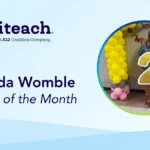Navigating teacher job fairs can be both exhilarating and nerve-wracking for educators eager to embark on their next professional journey. With opportunities to pursue and connections waiting to be made, proper preparation is key to making the most out of these events.
In this guide, we’ll delve into the essential steps to ensure you’re well-equipped before, during, and after the teacher job fair. From honing your elevator pitch to packing the right materials and following up effectively, we’ll explore the strategies that can transform a daunting job fair into a promising gateway to your dream teaching position.
Types of Teacher Job Fairs
In-Person
Traditionally, teacher job fairs are in-person events held in venues like hotels, convention centers, or schools themselves. At an in-person event, you’ll have the opportunity to meet with district representatives and recruiters face-to-face. These events can include on-the-spot interviews.
Networking at in-person events is more organic and conversational. While it’s easier to make a great first impression in person, it’s also imperative to take notes and exchange contact information. Virtual events may offer recordings for your review, transcripts, and contact lists.
When you’re in a hotel convention space, you only have your own memory to rely on. Don’t be afraid to take notes. Get the contact information of everyone you meet with. If they give you a business card, jot down some details of your interaction on the back so you’ll be able to reference them when you reach out.
Virtual
Virtual job fairs take a lot of the hassle and work out of networking. What you lose in face-to-face interaction, you gain in less travel expense and fewer barriers to access.
Virtual events are easier to attend for many teachers, which can mean higher attendance. Preparation can help you stand out from the crowd. These virtual events can include small group breakouts and one-to-one conversations. It’s helpful to prepare some questions for both scenarios.
Virtual job fairs are a fantastic opportunity to connect with schools outside of your local area without having to travel. While you’re networking, keep notes on who you’ve spoken with, what your interactions were about, schools you’re interested in and follow-up questions to send later.
Association Events
Many teacher’s associations organize career events and job fairs. Association events are often smaller, but more tailored than general conferences. These events may be grade-level focused, or cater to specific subject matter or specialties. Association events are perfect for teachers with a finely honed objective.
Because these events are often smaller, there’s a greater opportunity for personal connections but there can also be greater competition with similar backgrounds and qualifications.
How to Prepare for a Teacher Job Fair
Research the Event
The most important thing you can do to prepare for a teacher job fair is to research the event you’ll be attending. Whether this is an in-person, virtual, or association event, knowing the schedule, layout, objectives, and attendees will make it easier to effectively use your time.
Take the time to look into the backgrounds of leadership at specific schools of interest. Don’t stop at school level leadership. Spend some time familiarizing yourself with specific districts as well.
If you know representatives of a school you’re interested in will be in attendance, it doesn’t hurt to plan for those conversations. Having a few questions ready that are thoughtful and specific to that role or school shows a deep level of interest and intent that may impress.
Prepare for Interview Questions
Thinking about the types of questions you may be asked at interviews is classic preparation advice. But what is often overlooked is preparing the list of questions you would like to ask of prospective employers and school leadership.
During your research process, take some time to get to know the attendees and their backgrounds. Think of specific questions that will communicate to them the amount of time and effort you’ve put into your preparation.
Ask not only about roles you’re interested in, and schools you’d like to teach at, but reach deeper and broader. Ask about school district culture, and how leadership feels about the outlook for the next five and ten years. Thoughtful questions show your interviewers that you are interested and proactive.
Set Goals
The first step in being successful at anything is to decide what your goals are at the onset. How do you want to use your time at teacher job fairs? Who is the most important person for you to meet at this event? Is there a school hiring for an open role that you’d like to interview for?
After you’ve researched the event and the attendees, determine how you want to spend your time. Prioritize speaking with representatives from schools that are actively recruiting for roles you wish to fill. Don’t wait to speak to the person you’re most interested in until lunchtime or late in the day, or you may find yourself pushed out of the opportunity.
What to Bring with You
A Polished Resume
A teacher job fair is an occasion where a stack of paper resumes may still be useful. Many teachers choose to share online resumes and teaching portfolios, but some schools will still prefer a paper resume for review. Take some time to prepare a resume specifically for the event. Make sure it has all of your relevant experience, education, skill sets, and contact information. If you have a digital portfolio, include a link to that as well.
Teaching Portfolio
A teaching portfolio is absolutely essential to getting noticed at a teacher job fair. Your portfolio should include a diverse range of work that represents your specific skills and talents. Consider including things like lesson plans you’re particularly proud of, showcase student work, or include feedback and reviews from previous roles.
The point of this portfolio is to showcase who you are as an educator and what you bring to the table. You may choose to present a physical portfolio, or collect your materials online. No matter which format you choose, the important part is getting that portfolio in front of the right people.
Your 30-Second Pitch
Teacher job fairs will provide you with multiple opportunities for face-to-face networking. There are a lot of people at these events, and they’re very busy, so having a polished 30-second pitch is essential. Also known as an elevator pitch, this is a couple of high impact sentences that best communicate who you are, what you can do and why you’re a great fit. Practice your 30-second pitch with friends or colleagues before the teacher job fair, and you’ll be ready to deliver it multiple times throughout the event.
Letters of Recommendation
References and letters of recommendation tell potential employers and school systems more about what it’s like to work with you. Consider adding letters of recommendation to your job fair materials to share how past administrations have felt about your work. You can also include thoughtful notes from students and parents with your letters of recommendation. You may be working for the school system, but the way you interact with students and parents is just as important.
Comfortable Professional Clothes
Teacher job fairs require a delicate balance between professional wear that will make a perfect first impression and comfortable clothing that you can walk around in all day. At a job fair, you can expect to be on your feet for the duration of the event. Comfortable, sensible footwear that compliments your attire is the most important article you’ll wear that day. Choose breathable, comfortable, wrinkle-resistant clothing to appear fresh and polished from the beginning of the event to the end. The goal is to look as confident and comfortable as you feel.
What to Expect
Teacher job fairs are often busy and bustling events. You can expect to see a wide range of people and activities packed into one space. Whether it’s at a hotel convention center, a school gymnasium, or somewhere else, a teacher job fair will likely have high energy and sizable crowds.
Be prepared to navigate your way through a busy and crowded space before you arrive. Taking some time to research the venue and finding out where specific schools or personnel will be on the day of the event can make navigating the space much less stressful. If you know where the school’s booth will be set up, you can prioritize making it to that location before the event ends.
After the Event
An easy way to stand out from the crowd after a teacher job fair is to reach out to the connections you made. Sending a quick email that references a detail from your interaction shows the people you met with a level of attention and proactive attitude that many candidates won’t. While a follow-up message may not make or break an opportunity, it will certainly make your interaction stand out after a high volume event.
Keep these tips in mind to successfully navigate a teacher a job fair, and you’ll be prepared for a successful event.





